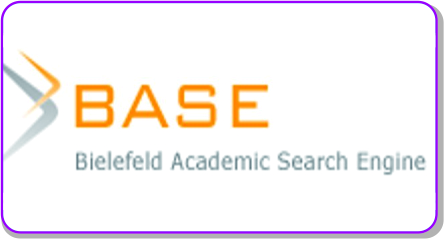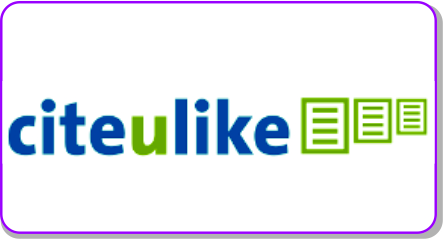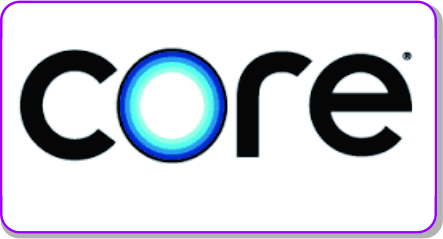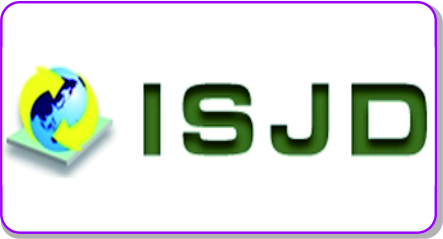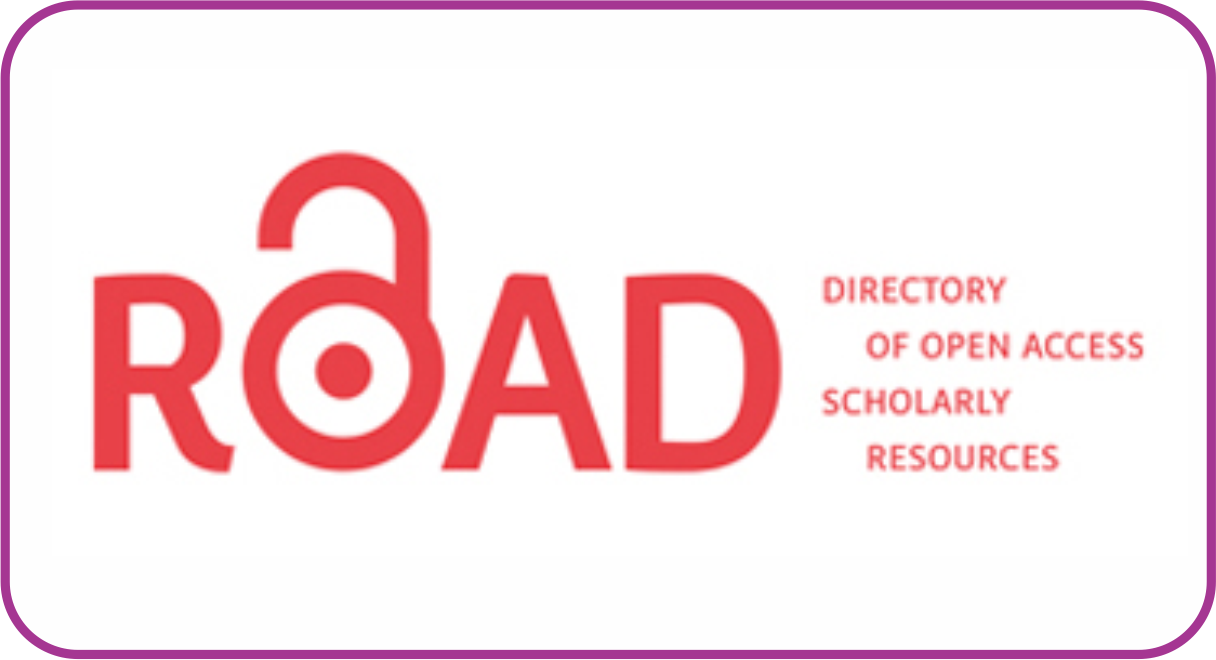Anti-Corruption Education in an Indonesian Government-Affiliated Academy: Graduates’ Perspectives on How Education Influenced their Behaviour in their Workplace
DOI:
https://doi.org/10.30983/educative.v8i2.7357Keywords:
Anti-Corruption Education, Educational Evaluation, Government-Affiliated AcademyAbstract
Preventing corruption through education programs is considered beneficial to the current efforts to curb corruption in Indonesian government sector. The present study explores how an anti-corruption educational program in a government-affiliated academy can influence the academy’s graduates. Three graduates of the academy who have worked in the government sector participated in this research. This qualitative study conducted semi-structured interviews with each participant. Kirkpatrick’s four-level evaluation model was used as the theoretical basis for assessing the impact of learning result in behavioural changing in the workplace. The findings of this study provide evidence that the anti-corruption program is positively linked to positive behaviour promoting anti-corruption values in the workplace. The participants perceived that the program helped them to develop a better understanding of the existing rules and regulations pertaining to corruption, changed their paradigm about corruption, and equipped them with the ability to be agents of change within the organisation.
Pencegahan korupsi melalui program pendidikan dipandang bermanfaat dalam upaya pemberantasan korupsi di sektor pemerintahan Indonesia saat ini. Penelitian ini mengeksplorasi bagaimana program pendidikan antikorupsi di sekolah kedinasan yang berafiliasi dengan pemerintah dapat mempengaruhi alumni instansi pendidikan tersebut. Tiga alumni yang bekerja di sektor pemerintahan berpartisipasi dalam penelitian ini. Penelitian kualitatif ini melakukan wawancara semi terstruktur kepada masing-masing partisipan. Model evaluasi empat tingkat Kirkpatrick digunakan sebagai landasan teori untuk menilai dampak hasil pembelajaran terhadap perubahan perilaku di tempat kerja. Hasil penelitian ini menunjukkan bahwa program antikorupsi berhubungan positif dengan perilaku positif yang mempromosikan nilai-nilai antikorupsi di tempat kerja. Para peserta menyatakan bahwa program tersebut membantu mereka mengembangkan pemahaman yang lebih baik mengenai peraturan dan perundang-undangan terkait anti korupsi, memperluas paradigma mereka tentang korupsi, dan membekali mereka dengan kemampuan untuk menjadi agen perubahan dalam organisasi.
References
Books
AFP, ‘Corruption in Indonesia Fuelled by Cheating Culture at Schools, Critics Say | South China Morning Post’, 2013, 2018
Schein, E. H, and P Schein, Organisational Culture and Leadership, 5th edn (Hoboken, New Jersey: John Wiley & Sons, 2017)
Bryman, A, Social Research Methods (5th Edition) (New York, N.Y.: Oxford University Press, 2016)
Biggs, J. B, Teaching for Quality Learning at University: What the Student Does (London, England: Open University Press, 2011)
Journals
Denisova-Schmidt, Elena, Martin Huber, and Yaroslav Prytula, The Effects of Anti-Corruption Videos on Attitudes towards Corruption in a Ukrainian Online Survey, 2019
Gwekwerere, Yovita N, Emmanuel Mushayikwa, and Viola Manokore, Canadian and International Education / Education Canadienne et Internationale Empowering Teachers to Become Change Agents through the Science Education In-Service Teacher Training Project in Zimbabwe, 2013
Harto, Kasinyo, ‘Pendidikan Anti Korupsi Berbasis Agama’, Intizar, 20.1 (2016), 121–38
Hauser, Christian, ‘Fighting Against Corruption: Does Anti-Corruption Training Make Any Difference?’, Journal of Business Ethics, 159.1 (2019), 281–99 <https://doi.org/10.1007/s10551-018-3808-3>
Hayati, Auliya Aenul, and Dede Trie Kurniawan, ‘Analysis and Identification of the Value of Anti-Corruption Education in Indonesian Traditional Games’, 429.Icasseth 2019 (2020), 75–78 <https://doi.org/10.2991/assehr.k.200402.017>
Hope, Kempe Ronald, ‘Training to Curb Police Corruption in Developing Countries: A Suggested Framework’, International Journal of Police Science and Management, 19.1 (2017), 3–10 <https://doi.org/10.1177/1461355716674371>
Hutton, J, ‘Is Indonesia’s Reformasi a Success, 20 Years after Suharto? | South China Morning Post’, 2018
Isra, Saldi, Yuliandri, Feri Amsari, and Hilaire Tegnan, ‘Obstruction of Justice in the Effort to Eradicate Corruption in Indonesia’, International Journal of Law, Crime and Justice, 51 (2017), 72–83 <https://doi.org/10.1016/j.ijlcj.2017.07.001>
Kaufman, Kristina J., ‘21 Ways to 21st Century Skills: Why Students Need Them and Ideas for Practical Implementation’, Kappa Delta Pi Record, 49.2 (2013), 78–83 <https://doi.org/10.1080/00228958.2013.786594>
Kirkpatrick, D, and J Kirkpatrick, Evaluating Training Programs: The Four Levels (San Francisco, California: Berrett-Koehler Publishers, 2006)
Komalasari, Kokom, and Didin Saripudin, ‘Integration of Anti-Corruption Education in School’s Activities’, American Journal of Applied Sciences, 2015 <https://doi.org/10.3844/ajassp.2015.445.451>
Liu, Chunhong, and Ming Yu Tseng, ‘Paradigmatic Variation in Hedging and Boosting: A Comparative Study of Discussions in Narrative Inquiry and Grounded Theory Research’, English for Specific Purposes, 61 (2021), 1–16 <https://doi.org/10.1016/j.esp.2020.08.002>
Manning, Paul, ‘Embedding Anti-Corruption in the MBA Curriculum: Reflections on a Case History Analysis of Affinity Fraud’, Journal of Global Responsibility, 9.1 (2018), 111–29 <https://doi.org/10.1108/JGR-06-2017-0035>
Marquette, Heather, Vinod Pavarala, and Kanchan K. Malik, ‘Religion and Attitudes towards Corruption in India: A Collective Action Problem?’, Development in Practice, 24.7 (2014), 854–66 <https://doi.org/10.1080/09614524.2014.942215>
Meyer-Sahling, Jan Hinrik, and Kim Sass Mikkelsen, ‘Codes of Ethics, Disciplinary Codes, and the Effectiveness of Anti-Corruption Frameworks: Evidence from a Survey of Civil Servants in Poland’, Review of Public Personnel Administration, 42.1 (2022), 142–64 <https://doi.org/10.1177/0734371X20949420>
Praslova, Ludmila, ‘Adaptation of Kirkpatrick’s Four Level Model of Training Criteria to Assessment of Learning Outcomes and Program Evaluation in Higher Education’, Educational Assessment, Evaluation and Accountability, 22.3 (2010), 215–25 <https://doi.org/10.1007/s11092-010-9098-7>
Pujiati, D, M. C Handini, and M Asmawi, ‘The Effect of Self-Control on Anti-Corruption Attitude on Students of Kindergartens in Central Java Province’, Jurnal Indria (Jurnal Ilmiah Pendidikan Prasekolah Dan Sekolah Awal), 4.2 (2019), 99–108
Puspito, N. T, S. Mx Elwina, S. M Elwina, U. I Sri, and Y Kurniadi, Pendidikan Anti Korupsi Untuk Perguruan Tinggi (Jakarta: Kemendikbud, 2011)
Rachman, ‘KPK Harap Pendidikan Antikorupsi Diimplementasikan Di Seluruh Kampus’, 2019, 2019
Rais, Sigit, and Mahendra Wijaya, 446 ANTI-CORRUPTION EDUCATION THROUGH THE UTILIZATION OF DIGITAL COMIC BOOK
Rochman, Syaifur, and Mimienaminah Sudjai’ie, Students’ Perspective on Cheating during the Assessment Process at Tertiary Level of Social and Political Sciences Faculty, Jenderal Soedirman University-Indonesia, 2014
Schütte, Sofie Arjon, ‘Against the Odds: Anti-Corruption Reform in Indonesia’, Public Administration and Development, 32.1 (2012), 38–48 <https://doi.org/10.1002/pad.623>
Sulistyawati, Sri, Risnawaty Risnawaty, and Nelvitia Purba, ‘Anti Corruption Education Through Characters Building Value’, IOSR Journal of Humanities and Social Science, 22.01 (2017), 07–11 <https://doi.org/10.9790/0837-2201020711>
Suryanto, T., I. K Seregig, Hartono, and E Rivai, ‘Preventing the Acts of Criminal Corruption through Legal Community Education’, Journal of Social Studies Education Research, 9.2 (2018), 138–59
Wibowo, C, and G. Irianto, ‘Persepsi Mahasiswa Akuntansi Tentang Penyelanggaraan Pendidikan Anti Korupsi Di Perguruan Tinggi’, Jurnal Ilmiah Mahasiswa Fakultas Ekonomi Dan Bisnis Universitas Brawijaya, 3.1 (2014)
Wihantoro, Yulian, Alan Lowe, Stuart Cooper, and Melina Manochin, ‘Bureaucratic Reform in Post-Asian Crisis Indonesia: The Directorate General of Tax’, Critical Perspectives on Accounting, 31 (2015), 44–63 <https://doi.org/10.1016/j.cpa.2015.04.002>
Winardi, Rijadh Djatu, Arizona Mustikarini, and Maria Azalea Anggraeni, ‘Academic Dishonesty among Accounting Students: Some Indonesian Evidence’, Jurnal Akuntansi Dan Keuangan Indonesia, 14.2 (2017), 142–64 <https://doi.org/10.21002/jaki.2017.08>
Online Database
Beers, L. M, ‘Coronavirus Fines: Victorians Face $1600 Penalty under Stage Three COVID Laws | 7NEWS’, 2020
Agus, F, ‘ICW Luncurkan Aplikasi Akademi Antikorupsi’, 2019, 2019
Rachman, ‘KPK Harap Pendidikan Antikorupsi Diimplementasikan Di Seluruh Kampus’, 2019, 2019
Hutton, J, ‘Is Indonesia’s Reformasi a Success, 20 Years after Suharto? | South China Morning Post’, 2018
Harjanto, S. A, ‘KPK Latih 17 Profesor Sebagai Penyuluh Antikorupsi’, 2020, 2020
Alamsyah, W, L Abid, and A Sunaryanto, Laporan Tren Penindakan Kasus Korupsi Tahun 2018, 2018
Downloads
Submitted
Accepted
Published
Issue
Section
License
Authors who publish with this journal agree to the following terms:
1. Authors retain copyright and grant the journal right of first publication with the work simultaneously licensed under a Creative Commons Attribution License that allows others to share the work with an acknowledgment of the work's authorship and initial publication in this journal.
2. Authors are able to enter into separate, additional contractual arrangements for the non-exclusive distribution of the journal's published version of the work (e.g., post it to an institutional repository or publish it in a book), with an acknowledgment of its initial publication in this journal.
3. Authors are permitted and encouraged to post their work online (e.g., in institutional repositories or on their website) prior to and during the submission process, as it can lead to productive exchanges, as well as earlier and greater citation of published work (See The Effect of Open Access).

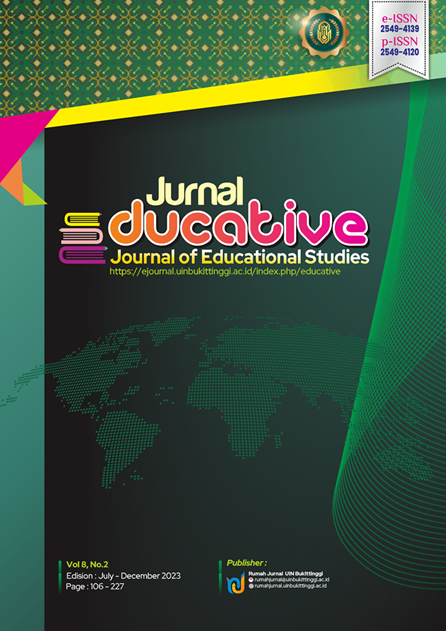



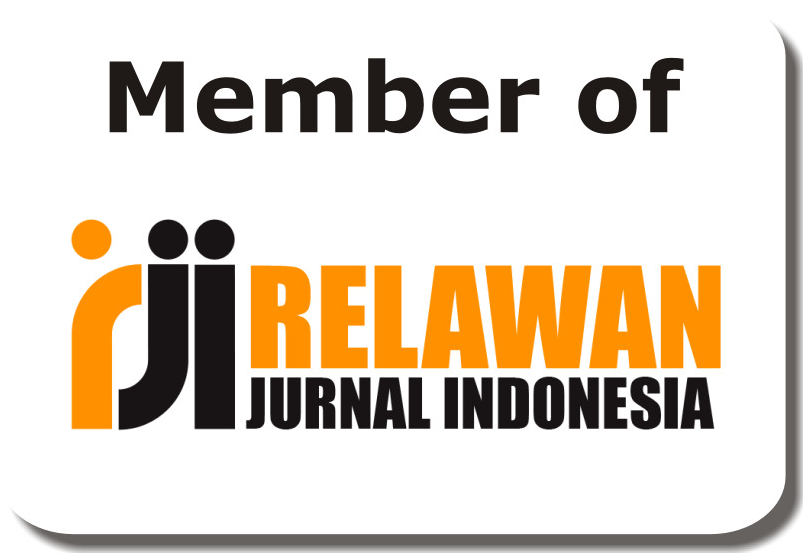


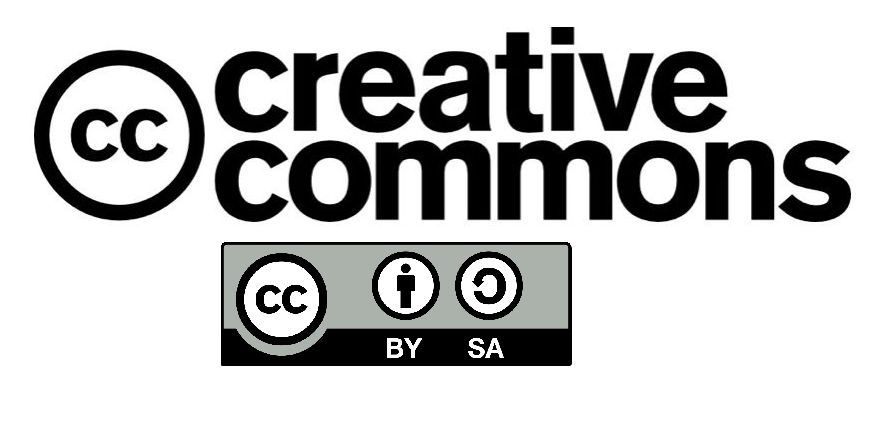


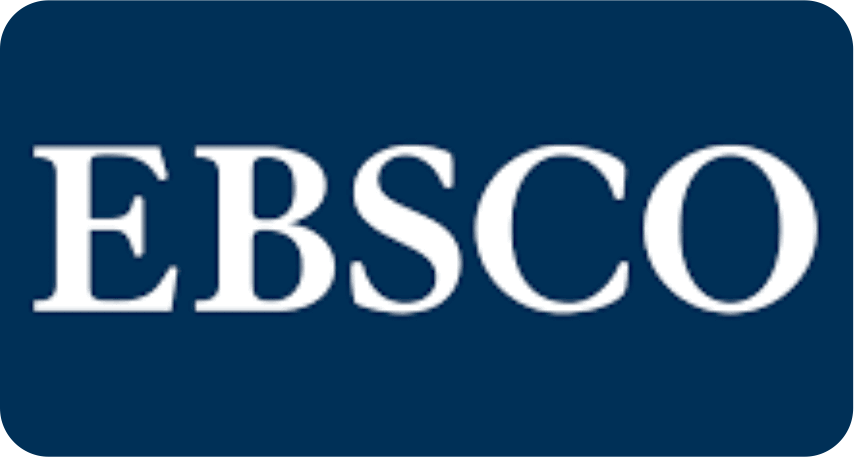






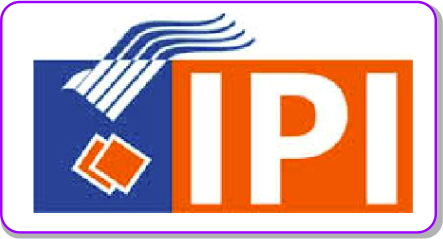 Â
 
